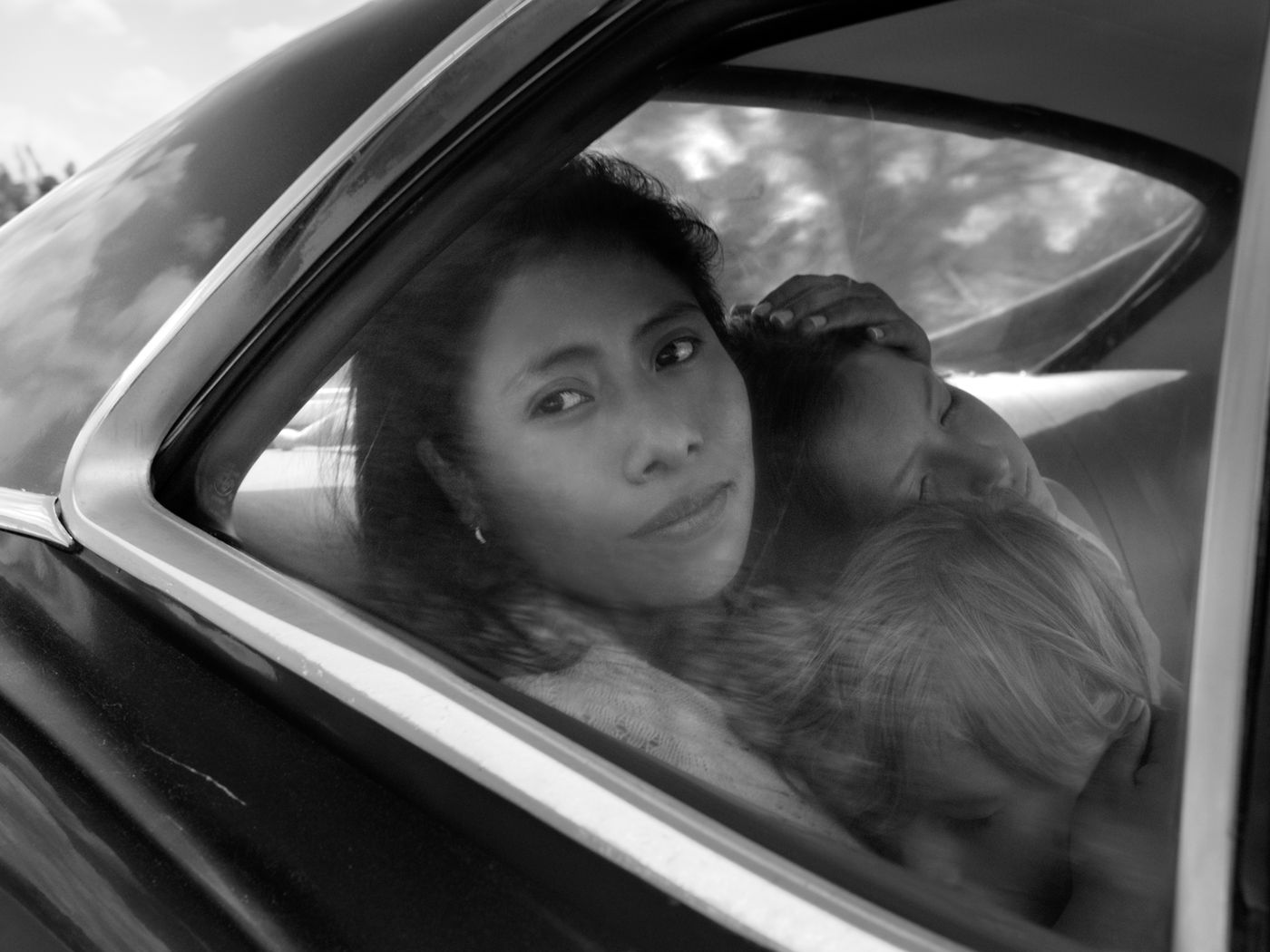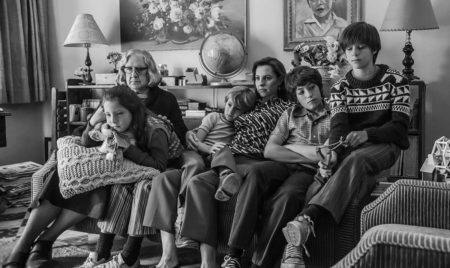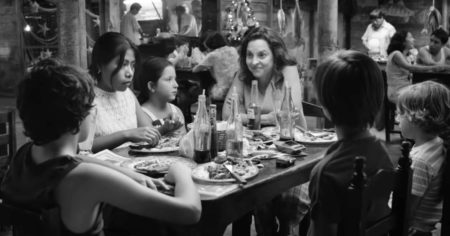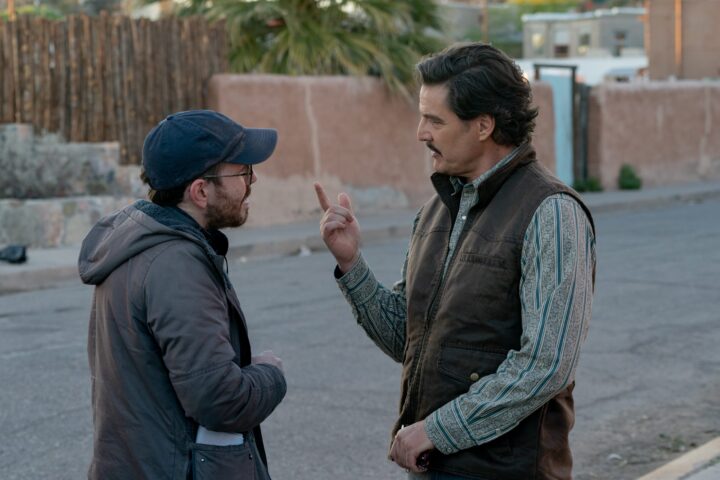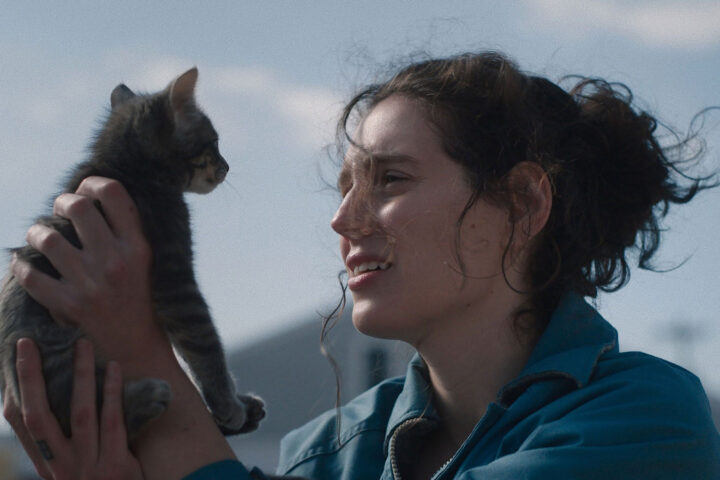In Alfonso Cuaron’s Roma, the Oscar-winning filmmaker looks back at his childhood circa 1971 Mexico City with a reverence for the women who raised, and formed, him. It’s part memory, part nostalgia, part Mexican history and most of all a testament to the unsung, tireless achievements of women who perhaps were of no notable distinction but couldn’t have been more heroic in their tireless work of raising and shaping children with few resources and little support.
The central figure in Roma is a quietly patient young nanny named Cleo, played by newcomer Yalitza Aparico with an unfettered, purely instinctual sense of presence that engenders great empathy. Aparicio, a pre-school teacher from Oaxaca, Mexico, cautiously (for fear of being trafficked) auditioned for Cuaron and with no acting experience delivers one of the year’s most enigmatic, benevolent and loving onscreen portraits. Acting without a script, hers is a work of such serene naturalism and innate compassion you feel an immediate bond.
And Marina de Tavira, an experienced Mexican star of stage and screen with a generosity of spirit, plays the harried household matriarch, Sofia, for whom the demands of managing a horde of rambunctious children and a failing marriage to a loutish good-for-nothing proves a day in, day out herculean struggle. Hers is a performance of flinty fortitude facing domestic and marital obstacles, expertly conveying the balancing act of the personal and maternal.
I recently had the great pleasure of sitting down with Yalitza Aparicio and Marina de Tavira to discuss the picture’s reverence for its often unheralded people and how a movie like Roma can create a cultural bridge and understanding, the need for movies about increasingly marginalized people, the hard work of women extraordinary in their ordinariness and what it means to convey goodness onscreen. Needless to say, it was a real treat spending time with such smart, kind and talented people.
Yalitza, what is this moment like for you?
Yalitza Aparicio: It is a once in a lifetime moment and you just don’t get experiences like this in life. I am very happy, especially for Alfonso, because everything he has done and risked is now fruitful. I also have hope that people who see the film will begin to realize that it would be great to be more human.
The movie makes one realize that great art has the ability to bridge cultures. We live in a world where we talk about walls every day. But rarely about bridges.
Marina de Tavira: Yes, thank you. Totally. I was just thinking about that. With Alfonso, it was like putting the spotlight on a community that we tend to take for granted and not acknowledge, and that has been suffering and through so much and lives with painful discrimination. And their lives, which are so tiring, are such journeys just to try and find a place in the world. So I really love that this film puts Cleo in the center, with her beautiful heart, and that she really makes a difference in the children’s lives and they finally embrace each other as family.
YA: I think it’s wonderful that throughout the film people are finally able to get to see this invisible, ‘other’ people that work in these homes who are actually part of these families and integral to parents and children. I hope that with what is going on now in society that people are able to see the true value of these people, and not to believe that they are not the same because of their social status or because they are women and therefore thought to be weak, or because of their culture and how they were raised, or perhaps think that they cannot aspire to be anything better than what they already are.
I found Roma to be distinctly a women’s story. I think any one of us could look back at the women who influenced each of our lives whether mothers, aunts, teachers, mentors or even in this case the nanny in the household. It’s a feminist film, in its own way. Marina, I loved the way you dealt with your children in the film. Your character has her private life away from them, but then of course her relationships with them. I was very moved by a scene late in the movie where you break the news to them about their father. I’m not sure if there’s a statement in the film about the men in their lives, but I felt this film was a testament to the strength of women.
MT: Completely. I never theorized about this, but it came to us as were doing the film that it was what Alfonso was intending. He is talking about women—not the women who go out and ask for the vote or write books and such things—but every day women who cook, change their children’s clothes, take them to school and deal with telling them that their father is not going to be there for them. I think they are heroines of every day life. There are so many women like this, who raise their children by themselves, and I think we still have a lot of work to do on what parenthood means. And I think that scene you mention is important because sometimes mothers don’t want their children to suffer and they end up swallowing it all.
The son’s reaction is particularly poignant.
MT: Yes. And it was something that came as a surprise. Alfonso worked a lot like this. He would never pressure a child to have that reaction. He would put all the elements of the story there and see what would happen. He would never say, ‘You have to have this emotional breakdown.’ That just happened. And that is the kid that represents him in the story. It also was a surprise for me when that happened. I knew I had to go to the end of the lines, but I just wanted to get up and hold him.
And we only see the back of his head.
MT: Yes. That was a decision Alfonso made. He could have placed the camera on the other side and said, ‘Let’s do it again.’ But instead he said, ‘Let’s leave it like that.’
YA: I think it’s extremely important that Alfonso portrays women like these and speaks about women to whom we can all relate—they could be our mothers, sisters or cousins. They are women that have gone through these situations. These are women that will swallow everything that may be going on, however difficult, to help their families to be okay and handle these burdens themselves, alone, working to make sure their children are well and that nothing touches them; that is typical of the mother character in the film. For the other women in the film—there were four of us—it is also very important to see the support that they provide to each other.
Yalitza, it seems to me that a difficult thing to “act” in a movie is the essence of what it means to be a good person. I think it may be easier to act other things—to say lines in particular ways or perhaps put on specific behaviors. But I think conveying a character of goodness is nearly impossible to act; either you have it, or you don’t. I think that is what we fall in love with when see you in the film. We want the best for you. That’s why I gave you a hug when I saw you rather than a handshake. Don’t you agree, Marina?
MT: Absolutely.
YA: What you mentioned was not intentional at all. I have never asked anyone how they see me, and I don’t know if this is the way I am. I only went through each scene as if it were my own life. When I meet people or get to know people, I always like to be on good terms with everyone. I like to show my happy side despite what might be going on in my life.
MT: I just want to say something really quickly. You said something very beautiful about the way she portrayed goodness, you know? She is like that. Alfonso said he wanted to search for an actress who had these devotional qualities. And I think he found gold with Yalitza.
Marina, you are a seasoned actress with extensive experience in movies, television and theater, and have done Brecht, Mamet and down the line of great playwrights. I believe it was a different style of working on this film, less about memorizing a script and perhaps more about being in the moment. True?
MT: Yes, it was about being in the moment! And I have always thought about acting as being in the present tense. That is what we read and theorize, because you always have to make the character react as if it was real life, even if you know what is going to happen. Alfonso did that in the most truthful way that I have ever experienced, because he actually had the actors live through what the characters were going through. He made it easy. It was easier to embrace the emotional journey of Sofia because I was learning it day by day. Of course, there is the acting consciousness because we repeat it; it’s not always as if we do it in one take. But still, we didn’t have time to process it or make an interpretation. We just lived it.
Let’s talk about the idea of family. The movie takes place in 1971 and now we are in 2018. So much seems to have changed. What dynamics do you think are different today, not just in a Mexican family but perhaps in all families?
YA: Unfortunately this was not the time I grew up in, so I found it really special. For example, all these family gatherings where they sit together, eating and talking about things and getting to know each other better. Even if the siblings are fighting, I think it’s perfect because that is also a way of being together and it’s normal. Speaking of the family at the table, now everyone is on their cell phones and are not even looking at each other. I don’t see that children play a lot nowadays and I find that really sad. Now children do not play with toys; they just use tablets and cell phones. I think something has been lost.
